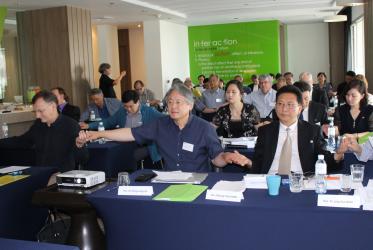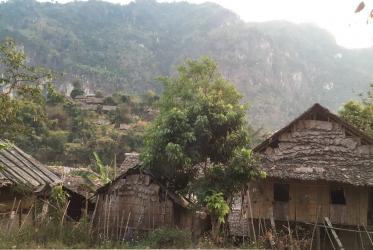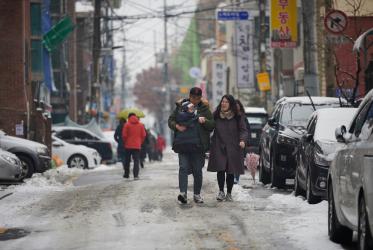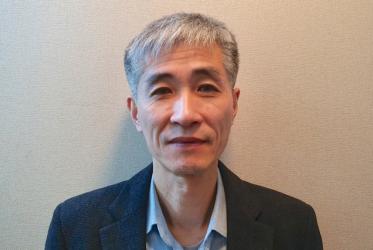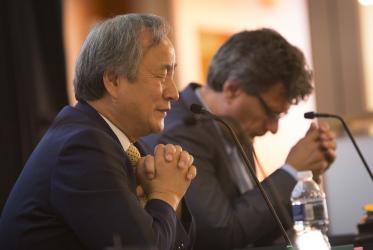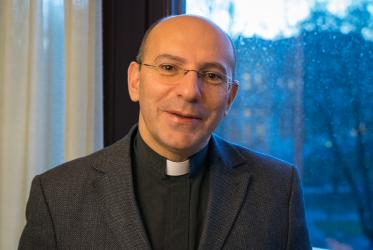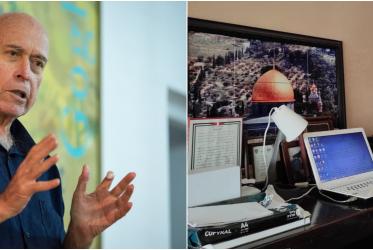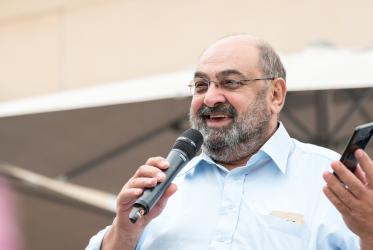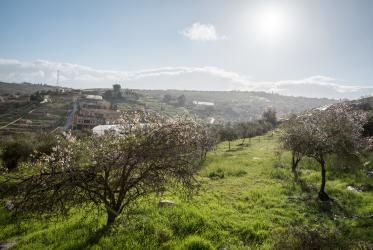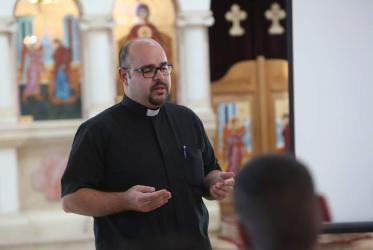Displaying 121 - 140 of 421
Peace and unity on the Korean Peninsula matters globally
25 February 2021
"Light of Peace" book now available in Korean
06 January 2021
Rev. Shin Seung-min: “We want to create hope, not despair”
22 December 2020
Bishop Hee-Soo Jung: “Prayer is a radical action”
11 December 2020
Palestinian Christian peace worker yearns for courageous leaders
10 December 2020
A hopeful, but not optimistic Palestinian ecumenist
09 December 2020
As olive harvest draws to a close, who is helping the farmers?
08 December 2020
WCC congratulates Dr Audeh Quawas on appointment to Jordanian Senate
27 November 2020
COVID-19 in conflict zones: “a crisis within another crisis”
27 November 2020
On World Olive Tree Day, planting is an act of love
26 November 2020
Fr Jamal Khader: “We need to keep hope alive” in Palestine
25 November 2020
